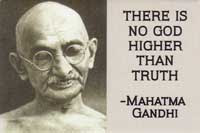This week's church is New Vintage Church at the Wells Fargo Center, just north of Santa Rosa. It is an evangelical congregation – an offshoot of a traditional Baptist church, in fact – whose core beliefs are that the Bible is the inspired word of God, and therefore without error and that God exists in three distinct persons: Father, Son, and Holy Spirit.
The mostly youthful 1,000-member congregation markets itself as "the church for people who don't like church". The services are raucous, often accompanied by high-energy rock music and hip, upbeat messages relevant to modern daily life, though still steeped in the infallible word of God.
While the services are drastically different from what I was exposed to as a child, the core beliefs are pretty much identical, so I doubt I will hear anything I am unfamiliar with. While I am trying to approach this project without prejudice, bias, or expectation, my feeling is there will be nothing I see or hear this week that will convince me that my decision to leave evangelical, fundamentalist Christianity was the wrong choice.
N.B.: The Wells Fargo Center, where New Vintage is based, was originally the Christian Life Center, a 5,000-member, 140,000-square-foot mega-church founded in the 1970s by the late Rev. A. Watson Argue, Jr. The building was sold for $4.5 million to local civic leaders at auction in 1981 after Argue filed for bankruptcy and his church collapsed in a financial scandal.
After the sale, it was transformed into the Luther Burbank Center for the Arts, a concert and entertainment venue. Today, it is the Wells Fargo Center, home to the Santa Rosa Symphony and the premier concert venue in the North Bay that has hosted nationally- and internationally-renowned musical artists, comedians, and other entertainers. The Center also rents space to a professional theatre company, a private school and church groups, New Vintage among them.
